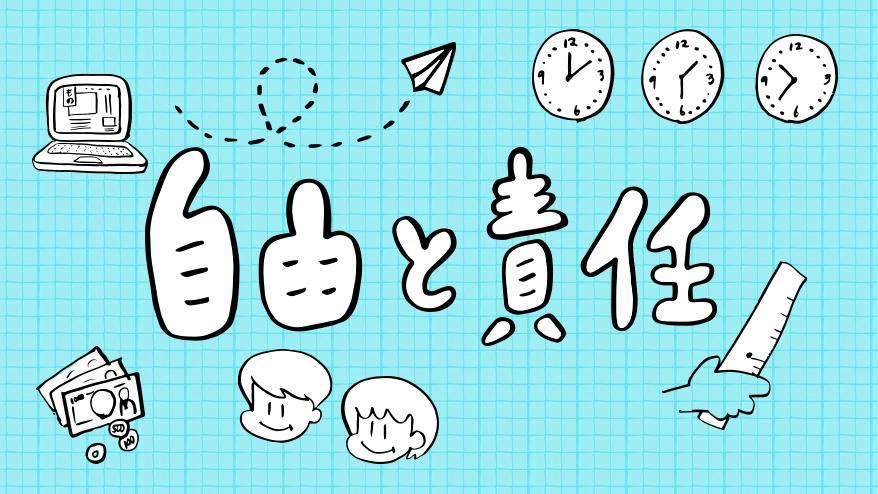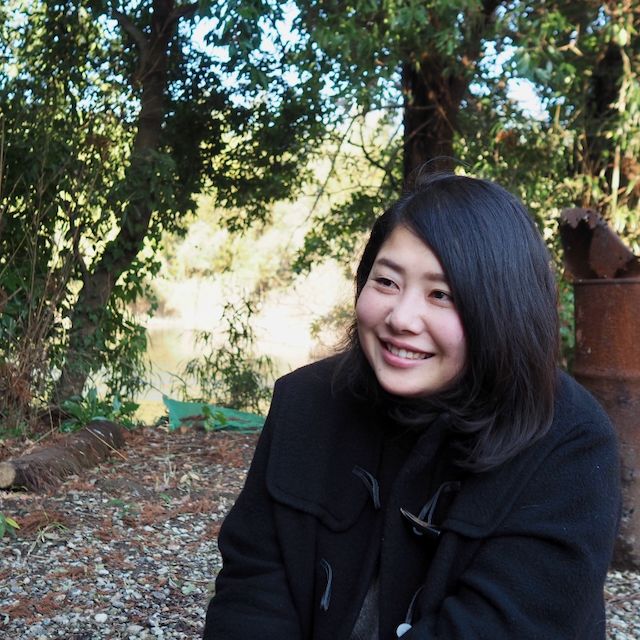Hello. I am Nozomi Nakajima, the manager of a job search website called Nihon Shigoto Hyakka.
It has been almost five months since Monosus made major changes to the working schedules of all employees and introduced a full flextime system.
What will people think and how will they start working when they can decide their own working hours? We will take this opportunity to introduce the changes, both good and bad, that have come with the change in the system.
In the first episode, we asked CEO Hayashi about his reasons for changing the relationship between the company and its employees from "obligations and rights" to "freedom and responsibility," and how he came to introduce the full flextime system.
Following the two coders introduced yesterday, Mr. Matsunaga from the Creative Department Operations Team and Mr. Matsubara from Coding Factory spoke to us about the specific changes that will be made.
What is a web development company like?
Nakajima : Nice to meet you. I heard that you two are actively trying to take advantage of the system, but I'd like to start by asking about your life before the full flex system was introduced.
Hello, I'm Matsunaga from the operations team. Before coming to Monosus, I worked as a test engineer for digital TV development, sold apparel, and even worked for a shipping company.
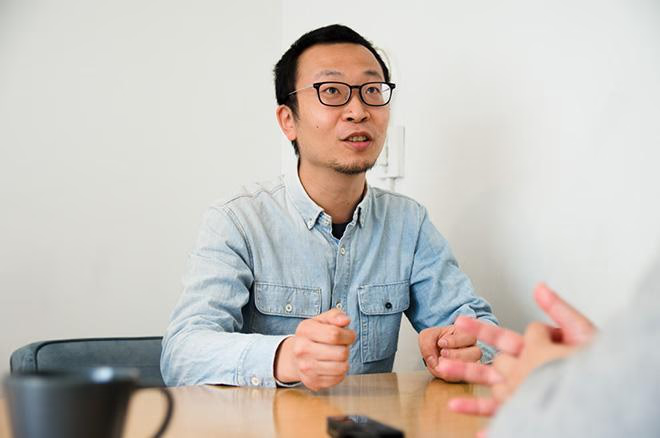
There are many people at Nakajima Monosus who have a wide range of experiences.
Matsunaga : At the time, I was sharing a room with a friend and helped him create an EC site. I was originally good at science and math, so I wondered if I could use that in my work. It's been three years since I started working at Monosus.
I was full of motivation because I had to learn a lot of things in this new industry. I would come to work at 10am, and my regular working hours were 7pm, but it was pretty normal for me to leave at 11pm. I was focused on finishing the work in front of me. I didn't really think about my work style.
Matsubara: I felt the same way. Before coming here, I was working as a temporary worker in the web industry. I started by self-studying, so I was worried whether I was doing it right. I wanted to learn the rules of the web properly, so I joined Monosus five years ago.
This was my first time working at a production company. I wondered if this is what a web production company is like. I thought that staying up all night was unavoidable sometimes.
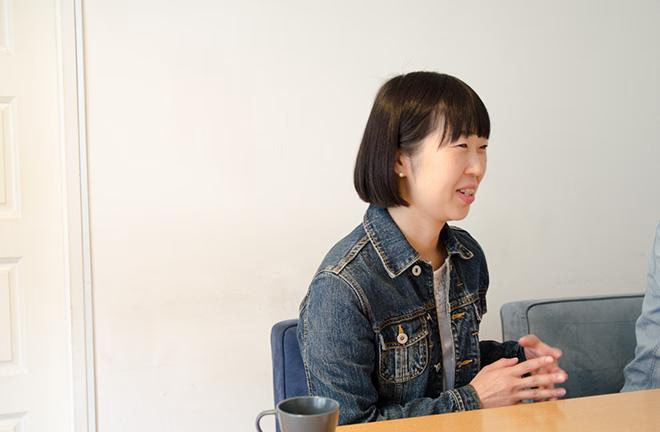
Nakajima : You both worked from morning until night. Didn't you get tired of it?
Matsubara: At the time, we had a drinking event once a month, so I often had the opportunity to relax at work. The people I worked with were all nice, and there was no boundary between my work and private life. I thought it was busy, but fun.
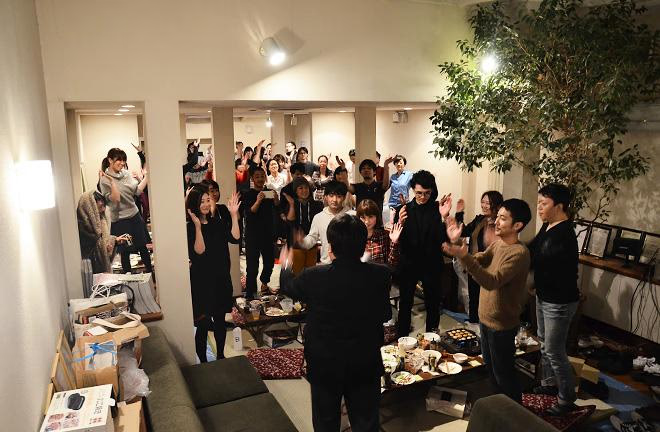
Creating rhythm
Nakajima: Since the system changed, how have you been spending your time?
Matsunaga: The first thing I wanted to do was to spend more time with my family. I have small children, and the only time I see them on weekdays is at breakfast. I thought that if I started working early and got home early, I would be able to spend time with my children in the evenings.
But when I tried it, my family started to complain.
Matsubara : Eh, why?
Matsunaga: The amount of work that used to take until 11pm doesn't change. Even if I come in at 7pm, I end up leaving the office at 8pm. When I get home, my kids are already asleep. I'm not around in the morning or at night, so it ends up putting a strain on my family.
Nakajima: It didn't go as planned.
Matsunaga : I'm thinking about starting work in the afternoon. I'd like to try different things while thinking about what time suits me and whether I can see my family.
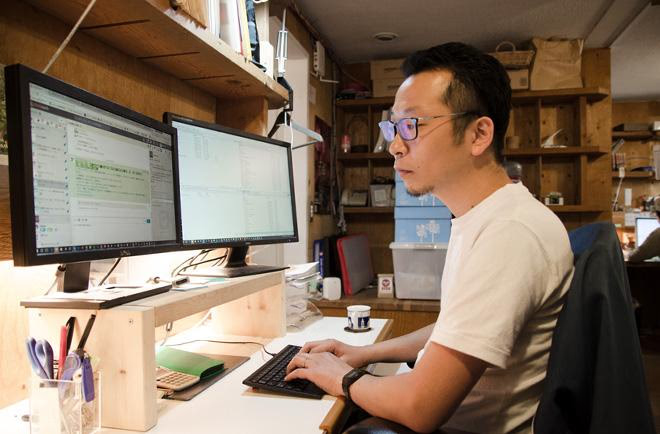
Matsubara: To be honest, I always thought that 7pm was a late regular working hour. But I thought it was something I couldn't do anything about. Now that I have the freedom to choose, I try to come in early and leave before 6pm.
Then, I was able to find a good rhythm at work. Even before the full flextime system was introduced, I was creating my own "mokumoku time."
Nakajima , is it time to work hard?
Matsubara: This is the one hour where I work silently without communicating with anyone. I wanted time to concentrate, so I asked the people around me for advice and started doing it, but I still got phone calls and people would talk to me. It didn't work out so well.
Now I come to work at a time when there aren't many people there, which gives me about an hour to concentrate.
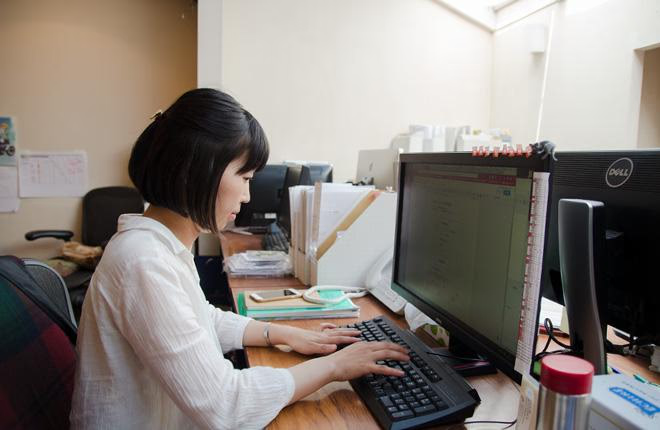
Nakajima : Both of you are trying to create your own rhythm. I think some people don't have a fixed time, and some people have different times each day. What do you think about the people around you?
Matsunaga : The operations team often has to deal with clients, so most people have a core time between 10am and 5pm, and the hours don't vary that much. So I don't think it's that much of a problem.
Matsubara: Actually, the coding factory where I work has a lot of issues. There are about 10 coders, but they're all different, and it's like they're all ego-driven (laughs).
I come in at the same time on weekdays and leave at the same time. Some people are not there for three days on weekdays, or they were there yesterday morning and today evening, so they are quite free to do things. It doesn't affect the project, so I don't mind. But I feel like we don't communicate well because we don't meet face to face.
I heard that at Nakajima Coding Factory, since people don't meet face-to-face, there are more opportunities to communicate using chat tools.
Matsubara: It's like our communication has decreased, or rather, I don't see him around, so I'm starting to wonder if he's really working. If I look at his schedule, I can see that he comes in at night, though. I've started to wonder what everyone is doing.
Nakajima: If small suspicions pile up, it could happen that relationships become strained without you realizing it.
"Freedom and Responsibility"
Before Matsubara , my work and private life were all mixed up, but now I feel like they're completely separated. When you have to manage it yourself, you have to decide the boundary for yourself. The boundary between work and private life is now clearer than ever before.
Matsunaga: I think I worry a lot less about work on my days off too.
Even though I'm taking advantage of the system, the time has just shifted. Until now, I've been doing what I can within the time constraints. Instead, I'd like to change my attitude to one where I get paid for the work I do.
Reality and ideal are still far apart. I want to try out various things. I want to use this as an opportunity to think not only about time, but also about how I proceed with my work and the way I work.
Matsubara: I think that everyone, myself included, is now tending to focus on their private lives. In that sense, everyone seems a little excited.
I think the system is essentially about thinking about how to approach work. I'd like to be able to be conscious of that as well.
Nakajima :Certainly, when you talk about "freedom and responsibility," the word "freedom" may not only refer to privacy.
Thank you for your time today.
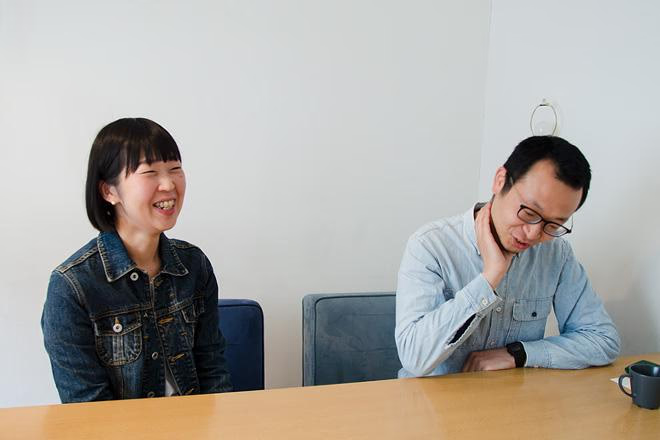
Decide your own working hours.
As they both explained, we tend to focus on our private lives first, but this may naturally change the way we approach our work.
You may find yourself rethinking your relationships with yourself, your family, your customers, and your coworkers.
The next episode will be released in June. I'm looking forward to hearing what story we'll hear next.
